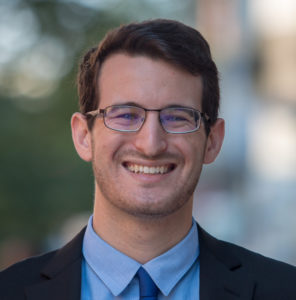


Zach joins the USGLC after holding several internship positions at nonprofits in DC, including at the World Affairs Council – Washington, DC. Zach recently graduated from Occidental College, where he received his bachelor’s degree in diplomacy & world affairs, and history. While at Occidental, Zach studied abroad in Freiburg, Germany, and additionally conducted research on U.S. engagement in international organizations. Zach is originally from Tucson, Arizona, and is excited to be living in DC once again.
As Congress negotiates a bipartisan domestic infrastructure package, the Administration set its sights on the global infrastructure challenge at the G-7 meetings in June. Infrastructure—from roads to schools—forms the connective building blocks of a sustainable economy, and infrastructure needs are especially high in low and lower-middle income countries. However, total infrastructure needs in the developing world will exceed $40 trillion by 2035, exacerbated by challenges from COVID-19 to climate change, and there remains a significant gap in financing to meet these needs.
Africa Day 2021 marks the 58th anniversary of the Organization of African Unity—now the African Union—and is a celebration of the diversity and independence of Africa’s 54 countries. The U.S. has a long and robust bipartisan history of support for building partnerships across the continent, especially when it comes to strengthening public health, developing local infrastructure, supporting political stability, and advancing trade. In celebration of Africa Day 2021, here are five areas where the United States’ partnership with the African continent has led to tremendous progress in recent years.
At this week’s Leaders Summit on Climate hosted at the White House, President Joe Biden underscored the need for international cooperation on the climate crisis, stating “No nation can solve this crisis on our own…all of us — and particularly those of us who represent the world’s largest economies — we have to step up.” This consensus was similarly reflected throughout the two-day Summit, as leaders from more than 40 countries alongside U.S. cabinet officials, business leaders, representatives from multilateral organizations, and even Pope Francis, discussed the immense challenge climate change poses and the cooperation needed to confront it.
Innovative ideas and technologies are driving the future of global development, and nowhere is this more evident than at Development Innovation Ventures (DIV), a flagship program at the U.S. Agency for International Development (USAID) that is leveraging innovation to meet today’s most pressing development challenges. A recent analysis of DIV’s grants found an incredible rate of return of $5 in social benefits for every dollar spent on innovations. Now, policymakers on both sides of the aisle—and practitioners alike—are focused on the role of innovation and technology in scaling development progress.
Colombia’s President Ivan Duque met with President Trump at the White House last week, and at the top of their agenda was Venezuela. Colombia has played a critical role in managing the regional migration crisis, taking in more than 1.7 million Venezuelan refugees—more than a third of the 4.5 million who have fled the country in recent years following political upheaval and economic collapse.
COP25 – the United Nations Climate Change Conference – ended with a compromise deal last month, with UN Secretary General António Guterres noting that he was “disappointed” that world leaders were unable to come to an agreement that effectively addresses today’s many climate-driven challenges, from rising sea levels to extreme weather. These challenges are already a stark reality for many – especially in the developing world.
Last month, in Wilmington, Delaware, we were joined by Dr. Michael Kremer, who was awarded the 2019 Nobel Prize in Economics alongside fellow economists Abhijit Banerjee and Esther Duflo for their groundbreaking and experimental work to tackle global poverty. Kremer sat down for a discussion alongside Senator Chris Coons (D-DE) to share his insights into how rigorous evaluation can ensure that investments in global development have a catalytic effect.
Nearly thirty years after the fall of the Berlin Wall, the state of democracy in the world remains a mixed picture of both progress and decline. But investments in diplomacy and development by the U.S. and new leadership in developing democracies provides fresh potential in addressing corruption.
Despite a new vaccine, the Ebola outbreak in the DRC has escalated into the second most deadly Ebola outbreak in history and crossed the border into neighboring Uganda, in part because conflict and violence are preventing an effective response. On July 17th, the World Health Organization declared the outbreak a Public Health Emergency of International Concern (PHEIC).
Get the latest news, advocacy, and event updates from the USGLC
Copyright 2024 USGLC | Privacy Policy
Notifications